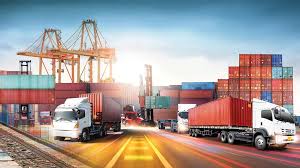In order to grow its business and focus on developing end-to-end contract logistics operations and gaining a larger share of delivery contracts from e-commerce giants, Germany’s DB Schenker intends to acquire businesses in India. According to Kinjal Pande, CEO of DB Schenker for India and the Indian subcontinent, the company, which is owned by the Deutsche Bahn Group, runs e-commerce deliveries abroad but plans to shortly begin a trial in India to secure a foothold in the expanding market.
According to Pande, a multinational e-commerce company’s incoming delivery service would be the focus of the trial. We intend to test the end-to-end movement by testing our first inbound delivery via air freight. We can start looking for prospective partnerships in this area once that gets going fully. However, we are currently carrying it out internally through partnerships with a local IT firm, according to Pande.
Aditi Rasquinha, executive vice president and head of ocean freight for the Asia-Pacific region, spoke about acquisitions and said that they had played a significant role in the company’s overall growth in all markets. This strategy will remain the same for India, where the company sees significant potential to expand its warehousing capabilities by acquiring domestic entities and operations.
In the last five to six years, the company has almost doubled the amount of warehouse space it has in the nation, and according to Pande, DB Schenker will keep growing at this rate for the foreseeable future. “Indian domestic logistics will be the source of the company’s inorganic expansion. Therefore, it can involve investments in trucking, technology, clearances, and contract logistics. According to Pande, who will be offering end-to-end logistics solutions, the majority of these acquisitions will be made with the company’s expansion into Tier II and Tier III cities in mind. There are currently two services per week from Mumbai and two from South India.
According to Pande, the German logistics operator’s air charters will shortly begin flying from China to a specific location in India. A charter flight to New Delhi is also planned. We will be discussing how the Russia-Ukraine crisis and the potential for a global recession may affect ocean and air freight operations. Rasquinha claimed that although the war increased freight rates, they are currently slowly and steadily falling.
The International Maritime Organization (IMO) 2023 will take effect after the COVID pandemic and the war scenario, which will require more greener practises for vessels. As a result, I don’t anticipate enterprises returning to their pre-coronavirus levels for the next two years. According to Rasquinha, as long as the sector continues to be ready to adhere to strict green standards, this could cause some disruptions.
According to Rasquinha, the International Maritime Organization’s laws will also keep freight costs reasonably firm for a while longer, but it won’t be as bad as in the first quarter of 2022, when rates spiked because of disruptions in shipping caused by the Russia-Ukraine crisis.










